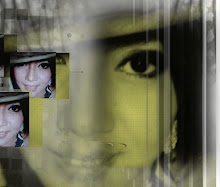HUMANISME
MASLOW BACKGROUND (Abraham Maslow)
MASLOW BACKGROUND (Abraham Maslow)
Maslow was born and raised in Brooklyn. the eldest of seven children. His parents were uneducated Jewish immigrants from Russia. He was slow and tidy, and remembered his childhood as lonely and rather unhappy, because, as he said, "I was the little Jewish boy in the non-Jewish neighborhood. It was a little like being the first Negro enrolled in the all-white school. I was isolated and unhappy. I grew up in libraries and among books, without friends.
Maslow first studied law at the City College of New York (CCNY). In 1927 he transferred to Cornell University, where his cousin Will Maslow was studying. His father hoped he would pursue law, but he went to graduate school at the University of Wisconsin to study psychology. While there, he married his first cousin Bertha in December 1928, and found as his chief mentor, professor Harry Harlow. At Wisconsin he pursued an original line of research, investigating primate dominance behavior and sexuality. He went on to further research at Columbia University, continuing similar studies; there he found another mentor in Alfred Adler, one of Sigmund Freud's early followers. From 1937 to 1951, Maslow was on the faculty of Brooklyn College. In New York he found two more mentors, anthropologist Ruth Benedict and Gestalt psychologist Max Wertheimer, whom he admired both professionally and personally. These two were so accomplished in both realms, and such "wonderful human beings" as well, that Maslow began taking notes about them and their behavior. This would be the basis of his lifelong research and thinking about mental health and human potential. He wrote extensively on the subject, borrowing ideas from other psychologists but adding significantly to them, especially the concepts of a hierarchy of needs, metaneeds, self-actualizing persons, and peak experiences. Maslow became the leader of the humanistic school of psychology that emerged in the 1950s and 1960s, which he referred to as the "third force" -- beyond Freudian theory and behaviorism.
Hierarchy of needs Maslow has set up a hierarchy of five levels of basic needs. Beyond these needs, higher levels of needs exist. These include needs for understanding, esthetic appreciation and purely spiritual needs. In the levels of the five basic needs, the person does not feel the second need until the demands of the first have been satisfied, nor the third until the second has been satisfied, and so on. Maslow's basic needs are as follows: Physiological Needs These are biological needs. They consist of needs for oxygen, food, water, sex, and a relatively constant body temperature. They are the strongest needs because if a person were deprived of all needs, the physiological ones would come first in the person's search for satisfaction.
Safety Needs When all physiological needs are satisfied and are no longer controlling thoughts and behaviors, the needs for security can become active. Adults have little awareness of their security needs except in times of emergency or periods of disorganization in the social structure (such as widespread rioting). Children often display the signs of insecurity and the need to be safe.
Needs of Love, Affection and Belonging When the needs for safety and for physiological well-being are satisfied, the next class of needs for love, affection and belonging can emerge. Maslow states that people seek to overcome feelings of loneliness and alienation. This involves both giving and receiving love, affection and the sense of belonging. Needs for Esteem When the first three classes of needs are satisfied, the needs for esteem can become dominant. These involve needs for both self-esteem and for the esteem a person gets from others. Humans have a need for a stable, firmly based, high level of self-respect, and respect from others. When these needs are satisfied, the person feels self-confident and valuable as a person in the world. When these needs are frustrated, the person feels inferior, weak, helpless and worthless.
Needs for Self-Actualization When all of the foregoing needs are satisfied, then and only then are the needs for self-actualization activated. Maslow describes self-actualization as a person's need to be and do that which the person was "born to do." "A musician must make music, an artist must paint, and a poet must write." These needs make themselves felt in signs of restlessness. The person feels on edge, tense, lacking something, in short, restless. If a person is hungry, unsafe, not loved or accepted, or lacking self-esteem, it is very easy to know what the person is restless about. It is not always clear
http://en.wikipedia.org/wiki/File:Maslow%27s_hierarchy_of_needs.svg
Bibliography A Theory of Human Motivation (originally published in Psychological Review, 1943, Vol. 50 #4, pp. 370–396). Motivation and Personality (1st edition: 1954, 2nd edition: 1970) Religions, Values and Peak-experiences, Columbus, Ohio: Ohio State University Press, 1964. Eupsychian Management, 1965; republished as Maslow on Management, 1998 The Psychology of Science: A Reconnaissance, New York: Harper & Row, 1966; Chapel Hill: Maurice Bassett, 2002. Toward a Psychology of Being, (2nd edition, 1968) The Farther Reaches of Human Nature, 1971




No comments:
Post a Comment